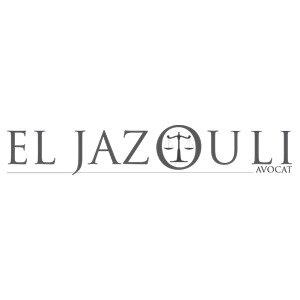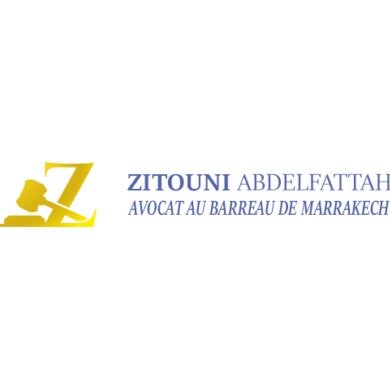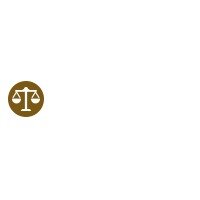Best Tax Lawyers in Marrakesh
Share your needs with us, get contacted by law firms.
Free. Takes 2 min.
List of the best lawyers in Marrakesh, Morocco
About Tax Law in Marrakesh, Morocco
Tax law in Marrakesh, Morocco governs the taxation of individuals, businesses, and other entities within the city. Taxes are levied by both the national government and local authorities, and compliance with tax laws is essential to avoid penalties and legal issues.
Why You May Need a Lawyer
There are several situations where you may need a lawyer specializing in tax law in Marrakesh, Morocco. Some common scenarios include disputes with tax authorities, filing complex tax returns, starting a new business, or facing an audit. A lawyer can provide guidance, representation, and expert advice to help you navigate the complexities of tax law.
Local Laws Overview
Key aspects of local tax laws in Marrakesh, Morocco include income tax, value-added tax (VAT), corporate tax, property tax, and customs duties. It is important to understand the specific regulations and requirements for each type of tax to ensure compliance and avoid legal issues.
Frequently Asked Questions
1. How are income taxes calculated in Marrakesh, Morocco?
Income taxes in Marrakesh, Morocco are calculated based on a progressive tax rate system, where the tax rate increases as income levels rise. Various deductions and credits may apply to reduce your taxable income.
2. Are there any tax incentives for businesses in Marrakesh, Morocco?
Yes, there are tax incentives available for businesses in Marrakesh, Morocco, such as reduced tax rates for certain industries, investment tax credits, and exemptions for specific types of income.
3. What is the VAT rate in Marrakesh, Morocco?
The standard VAT rate in Marrakesh, Morocco is 20%, but there are also reduced rates for certain goods and services. VAT is levied on the value added at each stage of production and distribution.
4. How can I appeal a tax assessment in Marrakesh, Morocco?
If you disagree with a tax assessment in Marrakesh, Morocco, you can appeal the decision by filing a formal objection with the tax authority and providing supporting documentation to support your case.
5. What are the penalties for non-compliance with tax laws in Marrakesh, Morocco?
Penalties for non-compliance with tax laws in Marrakesh, Morocco can include fines, interest payments on overdue taxes, and potential legal action. It is important to address any tax issues promptly to avoid severe consequences.
6. Can a lawyer help me with tax planning in Marrakesh, Morocco?
Yes, a lawyer specializing in tax law can help you with tax planning strategies to minimize your tax liability, maximize deductions, and ensure compliance with local tax laws in Marrakesh, Morocco.
7. Are there any tax treaties that Marrakesh, Morocco has with other countries?
Yes, Marrakesh, Morocco has tax treaties with several countries to prevent double taxation, promote international trade, and facilitate cooperation on tax matters. These treaties outline the rules for taxing cross-border income and the exchange of tax information.
8. How can I obtain a tax identification number in Marrakesh, Morocco?
To obtain a tax identification number in Marrakesh, Morocco, you need to register with the tax authorities and provide the necessary documentation, such as your national identification card, proof of address, and business registration documents if applicable.
9. What are the deadlines for filing tax returns in Marrakesh, Morocco?
The deadlines for filing tax returns in Marrakesh, Morocco vary depending on the type of tax and your taxpayer status. It is important to be aware of the specific deadlines to avoid penalties for late filing.
10. Are there any exemptions available for certain types of income in Marrakesh, Morocco?
Yes, there are exemptions available for certain types of income in Marrakesh, Morocco, such as income from agricultural activities, charitable donations, and specific investments. It is essential to understand the eligibility criteria and requirements for each exemption.
Additional Resources
For additional resources and assistance with tax law in Marrakesh, Morocco, you can contact the local tax authority, the Ministry of Finance, or seek guidance from professional organizations, such as the Moroccan Association of Tax Lawyers.
Next Steps
If you require legal assistance with tax matters in Marrakesh, Morocco, consider consulting with a qualified tax lawyer who can provide expert advice, representation, and help you navigate the complexities of tax law. Be proactive in addressing any tax issues to ensure compliance and avoid potential legal consequences.
Lawzana helps you find the best lawyers and law firms in Marrakesh through a curated and pre-screened list of qualified legal professionals. Our platform offers rankings and detailed profiles of attorneys and law firms, allowing you to compare based on practice areas, including Tax, experience, and client feedback.
Each profile includes a description of the firm's areas of practice, client reviews, team members and partners, year of establishment, spoken languages, office locations, contact information, social media presence, and any published articles or resources. Most firms on our platform speak English and are experienced in both local and international legal matters.
Get a quote from top-rated law firms in Marrakesh, Morocco — quickly, securely, and without unnecessary hassle.
Disclaimer:
The information provided on this page is for general informational purposes only and does not constitute legal advice. While we strive to ensure the accuracy and relevance of the content, legal information may change over time, and interpretations of the law can vary. You should always consult with a qualified legal professional for advice specific to your situation.
We disclaim all liability for actions taken or not taken based on the content of this page. If you believe any information is incorrect or outdated, please contact us, and we will review and update it where appropriate.















